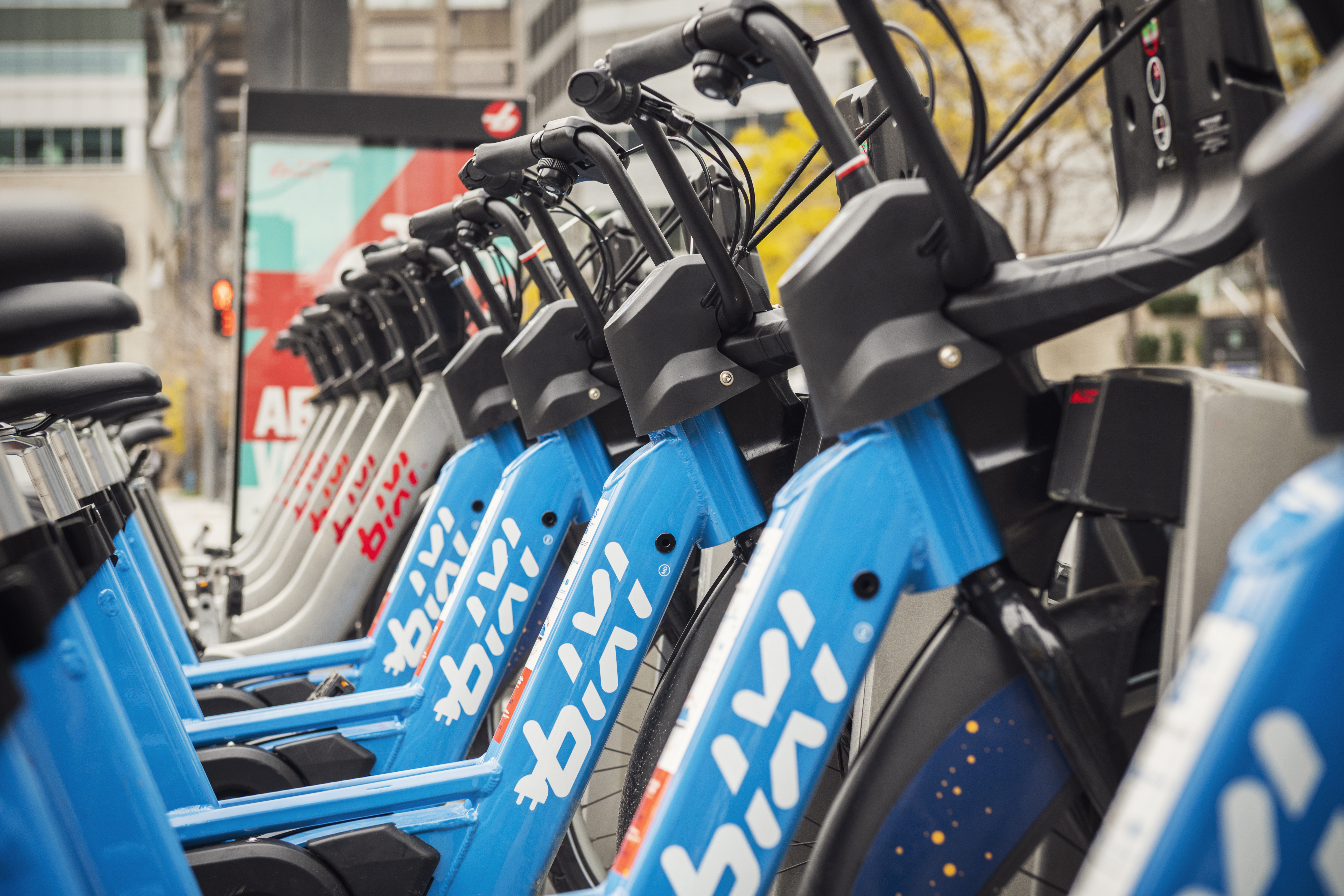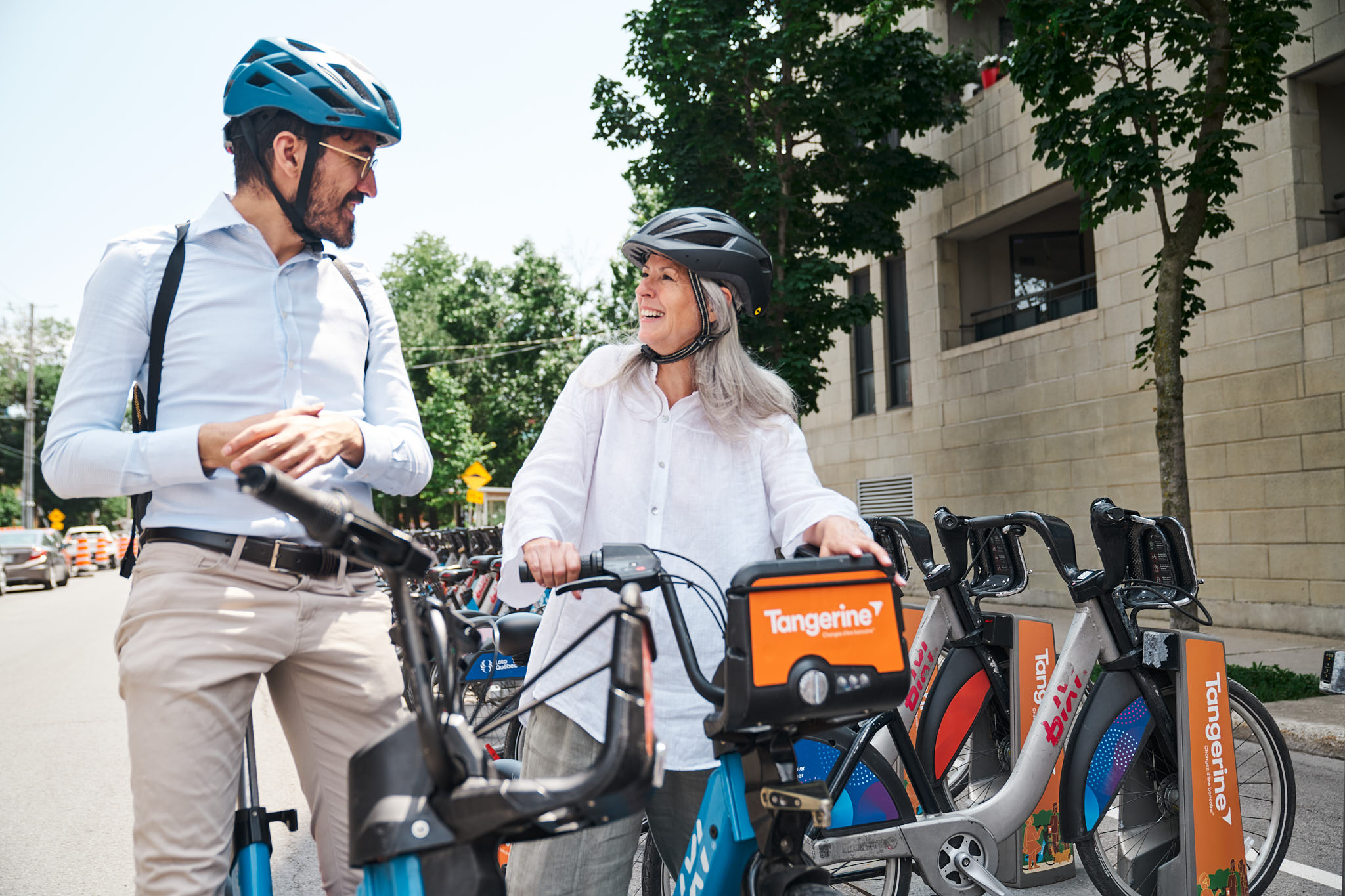
Fully electric bikeshare system launches in Rivas-Vaciamadrid, Spain
June 24, 2025 — Launches & expansionsLaunches & expansions, City series
Deployed across Montreal and in 8 municipalities, BIXI has become a key pillar of sustainable urban mobility in the metropolitan region of Montreal. Launched in 2009 with a fleet of 3,000 bikes, the system - a pioneer of the bike-sharing movement in North America - has expanded rapidly and now includes more than 11,000 bikes, including 2,600 electric bikes, spread across 900 stations.
BIXI registers tons of trips every year, with an impressive record of 11.7 million trips in 2023 and over 2 million trips recorded in just one month, in July 2024. This success demonstrates the ability of this model to create an integrated, interconnected mobility solution that meets the needs of large metropolitan areas. By integrating seamlessly into existing transportation networks and across diverse communities, Greater Montreal Area’s (GMA) bike-sharing system offers not only an environmentally-friendly alternative, but also a modern, flexible infrastructure that benefits users, operators and municipalities alike.
Let's find out how this success story has positioned GMA as a model for metropolites worldwide.

BIXI has steadily expanded its network to serve a large portion of the metropolitan area. In 2011, just two years after its launch, the solution crossed Montreal's shore by rolling out in Longueuil, marking the start of its expansion beyond the island. The following year, the system expanded to Westmount.
As of 2019, BIXI's expansion accelerated with the rollout of the solution in five new Montreal boroughs (Lachine, Saint-Laurent, Montreal- Nord, Anjou and Saint-Léonard). That same year, BIXI announced that “the service would be deployed in all 19 Montreal boroughs by 2028”, tripling the network's coverage over the coming decade.
Here is a timeline reflecting BIXI’s expansions in recent years:

Today in Longueuil, 26 stations host 200 bikes, including 70 electric-assist models, providing a convenient and eco-friendly solution for everyday commuting. Laval has 26 stations with a combined fleet of 80 electric-assist bikes and 215 mechanical bikes. The city has also announced an expansion of its fleet scheduled for 2025.
The success of GMA’s bike-sharing system stems primarily from its seamless integration and connectivity across the region's municipalities. With a single subscription, users can easily navigate between several cities and boroughs, benefiting from a mobility solution customized to their daily needs. Whether it’s commuting to work, school or leisure activities, users can combine cycling with other means of transport, such as the metro, bus or train, using the bike as a first- and last-mile solution.
In fact, BIXI stations are strategically located close to major public transport hubs, enabling multimodal journeys. This encourages residents and tourists to use shared transport more often, while contributing to a healthier and more sustainable environment. This model promotes better coordination between different municipalities, boosting the overall efficiency of the urban transport network.

In addition to providing a practical and eco-friendly solution for both citizens and cities, the system also delivers significant benefits for the operator. Centralized management enables streamlined, efficient maintenance and ensures optimal accessibility across the entire region, keeping the system running smoothly and reliably.
Thanks to the modularity of Lyft Urban Solutions' solutions, the Montreal metropolitan region's system has demonstrated its ability to integrate effectively into a variety of urban environments, from densely populated city centers to sprawling suburbs. Our customized solutions adapt to the specific realities of each city and meet the diverse needs of users, offering the flexibility required to thrive in varied urban environments.
These solutions also stand out for their innovative technology, featuring modular, electric smart stations and electric bikes that create a modern infrastructure, ready for deployment in various urban environments. Beyond their technological advantages, our bike-sharing networks play a vital role in reducing CO2 emissions, aligning with the sustainability goals of cities worldwide.
With over 83 million rides taken since its launch, BIXI proves that the demand for sustainable urban mobility keeps growing. Will your city be the next to join the bike-sharing movement?